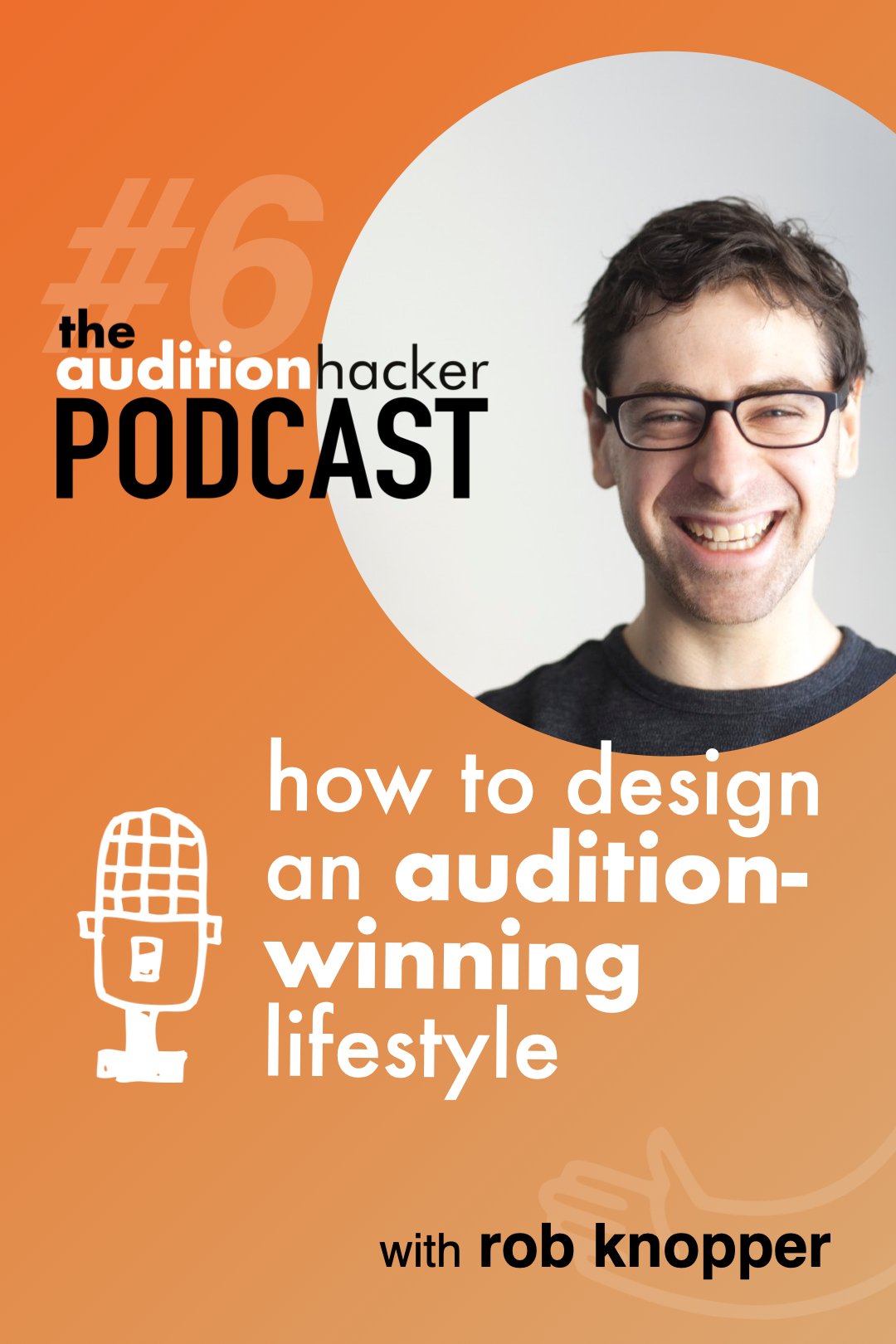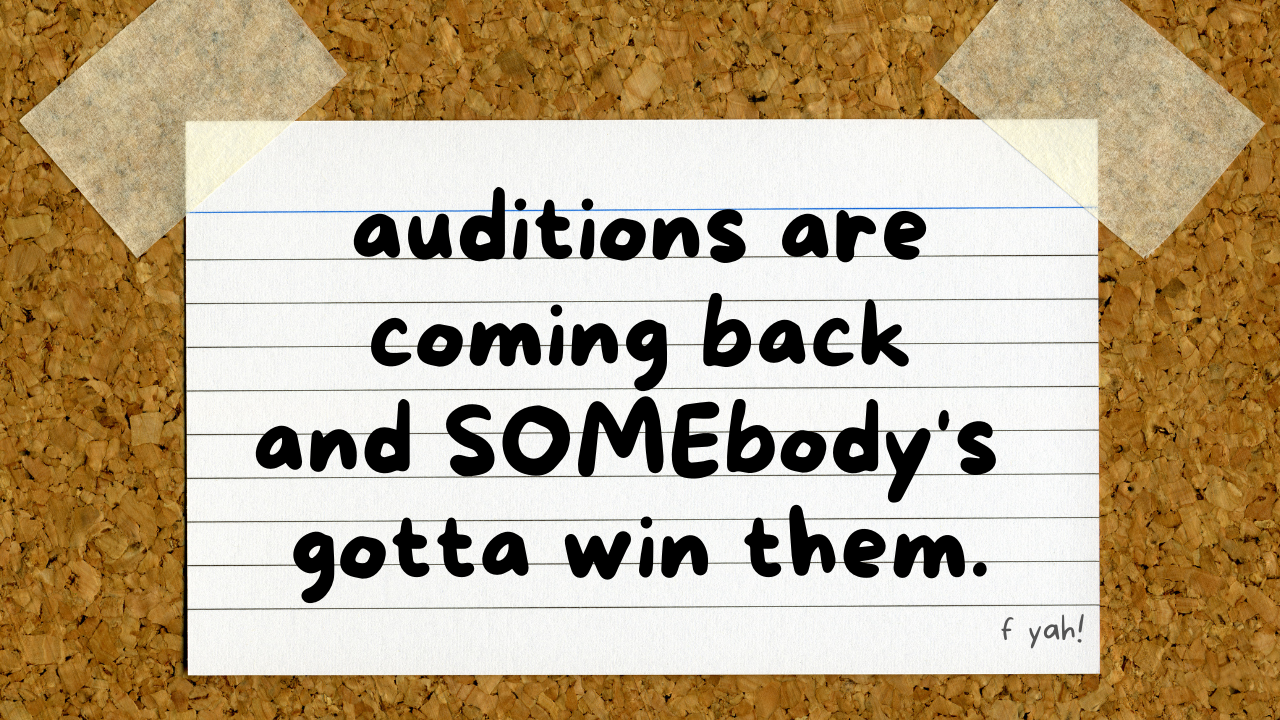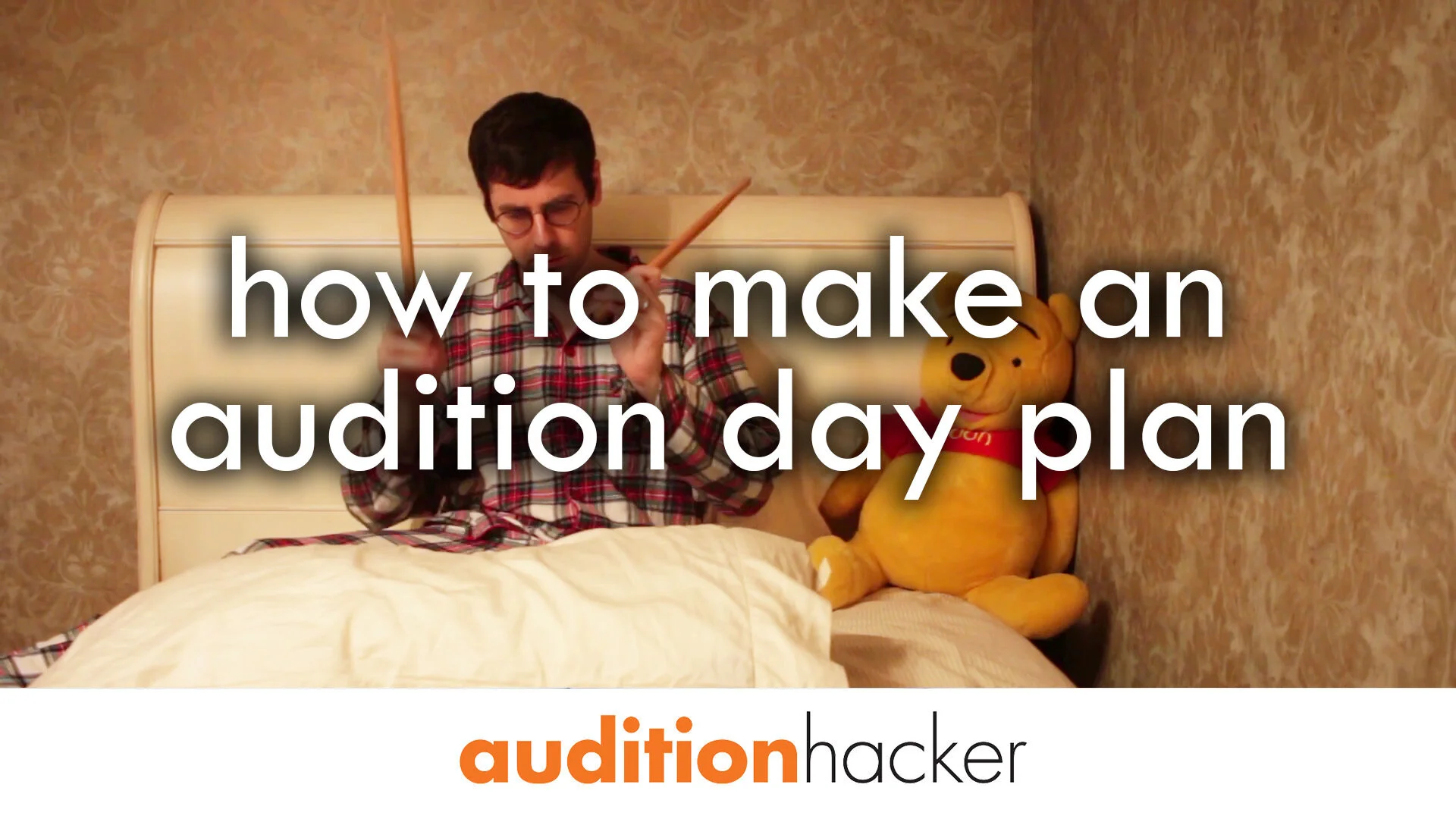i think nerves affect me in the weirdest way.
seriously. i have a bunch of the normal symptoms… like my hands shake when i’m playing soft snare drum. and my heart starts beating really fast.
but here’s the weird one: in the warmup room i have to go to the bathroom CONSTANTLY.
(why, god, why?!)
so my question is this. if nerves are psychological, why don’t they teach us how to deal with this in school?
how do you learn to overcome performance anxiety in a world where everyone’s talking about music and technique?

meet noa.
noa kageyama is a violinist-turned-performance psychologist and he runs the bulletproof musician blog.
he teaches students how to beat anxiety and win auditions using the same mental skills top athletes have used for decades.
it’s inspiring, really.
today i brought noa into the auditionhacker studios to ask him 3 questions about mental practice:
1. what is mental practice?
2. what does mental practice look like?
3. when is the right time to do mental practice?
he even gives you an exercise that you can do in the practice room today. enjoy!
it's episode #8 of the auditionhacker podcast, and i'll go over my best methods for getting better feedback.
it’s episode #7 of the auditionhacker podcast, and i’ll go over:
how i spent 6 months perfecting the 12 delécluse études,
the special strategy i used in preparation, called “the magical shrinking self-recording workflow”,
how preparation needs to be structured for a recording vs. a live audition, and
my best tips and strategies to make a recording session go smoothly.
it’s episode #6 of the auditionhacker podcast, and i’m going over:
the legendary and now-defunct practice of challenges,
adopting the olympian mindset as a musician, and
the most accurate indicator of future audition success.
i've worked with hundreds of musicians on audition preparation. and nothing - NOTHING - has been as effective and life-changing as when they start self-recording the right way.
imprecise rhythm is something that can get you cut from an audition IMMEDIATELY (regardless of your instrument). and great rhythm is something that an audition committee can sense, both consciously and subconsciously. hearing someone play in the pocket just feels good.
well, i have a few tricks up my sleeve to straighten out my rhythm, and today i'm sharing one of the most effective strategies.
in today's episode, i'll go over:
my audition journey and how i ended up winning the met opera job,
3 of my favorite audition hacks, and
the one thing that's so much more meaningful than the result of the audition.
things i do on audition day:
warm up by playing on the hotel pillow,
watch vast amounts of tv shows on my phone, and
never drink coffee.
when i was in detroit in february i got to interview three great DSO musicians on how they approach audition day. pretty fascinating to see how their approaches are so different from each other.










in 2019, a cellist named maria reached out to me about her audition struggles. on paper, she was the “worst audition candidate ever” (her words). she had 2 small children, a full-time teaching job, and hadn’t taken an audition in 4 years.